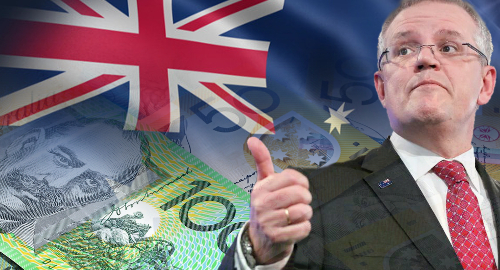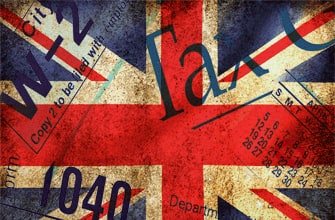Gambling Point Of Consumption Tax
Following it’s official announcement in the 2019-20 Tasmanian State Budget, the Tasmanian Government will impose a point of consumption tax on all net wagering revenue to be paid by betting companies, starting January 2020.
The government on October 7 confirmed earlier this month the 15% tax will begin on January 1, 2020.


The first stage of this was announced in the 2018 budget and will see the point of consumption tax, introduced in 2014, increase from 15% to 21% for online gambling. The remote gaming duty (RGD) increases by 6% to the new level of 21% on the 1st October 2019. However, a 2014 amendment to the 2005 Gambling Act (the one initiated by Brown in 2001), also stipulated that there would be a point of consumption tax on foreign gambling sites catering to UK players. The overriding rule change meant that any operator offering betting accounts to UK players had to pay the same 15% duty as their UK-based. Under the point of consumption tax, which has already been implemented in Queensland and South Australia, gambling losses are taxed based on where bets are placed, rather than the territory where the company’s licence is held. The rise of internet gambling has prompted some states to introduce point-of-consumption taxes that are levied on expenditures, says Charles Livingstone, head of the Gambling and Social Determinants unit at Monash University’s School of Public Health and Preventive Medicine.
Treasurer Peter Gutwein said the tax is expected to generate $5 million per annum, according to Casino Aus.
“It is expected that the additional revenue from this initiative will generate about $5 million per annum, with the net benefits to be appropriately shared with the local racing industry,” Mr Gutwein said.
“Following consultation with industry stakeholders, is has been determined the Point of Consumption Tax will be set at a rate of 15 per cent of the net wagering revenue of betting companies, and will exclude the face value of free bets provided to bettors.”

“This rate is consistent with most other jurisdictions and there will also be a tax-free threshold of $150,000 in betting turnover.”
The point of consumption tax is imposed on gambling providers, where it also can apply to online gaming operators and land-based gambling establishments.
The tax is calculated based on the customers location where the product is consumed.

The purpose of the tax is to keep companies from locating elsewhere for tax breaks. For example, if a company is based in another country but caters to Tasmanian customers, it would normally avoid Tasmanian taxes. However, the POC tax charges a tax to that company for revenue earned from customers in Tasmania.
Many gambling businesses oppose the tax because they have to pay both a POC tax and a tax in their own country, while the governments imposing the tax believe it incentivises the company to relocate to the territory of its customers.
Australian State Tasmania To Introduce 15% Point-of-consumption Tax On Net Gaming Revenues – https://t.co/BNP04B9Pmipic.twitter.com/pkiKxx4FNJ
— Casino.BuzZ (@BuzzCasino) October 11, 2019
RWA Chairman slams the rate
Responsible Wagering Australia’s chairman Nick Minchin has slammed the rate of tax of 15%, stating the Tasmanian Liberal Government was introducing one of the highest taxes on wagering anywhere in the world.
“This tax is almost double that introduced by Victoria’s Labor Government and the Tasmanian Liberal Government now holds the dubious honour of taxing Tasmanians at a higher rate than any other Australian state,” Mr Minchin said.
“The 15% Point of Consumption Tax introduced in South Australia threw a handbrake on that State’s racing industry and has almost brought it to its knees. In South Australia, prizemoney has been cut, field sizes have shrunk, participants have fled interstate and jobs have been lost.
“Starting off a much lower base, the Tasmanian Government has today put that same handbrake onto Tasmanian racing and thrown its future into massive uncertainty.
Gambling Point Of Consumption Taxable
“The evidence is now well-settled when it comes to the deleterious impact of these punitive taxes on racing and jobs. That is why it is so disappointing the Tasmanian Government has ignored the evidence and decided to hit ordinary Tasmanians with this new tax.”
Tasmania is one of the last states or territories within Australia to implement a POC tax.
In order of implementation, South Australia introduced a 15% tax in July 2017, followed by Queensland (15%) in October 2018 and the ACT and Western Australia (both 15%) in January 2019.
Uk Gambling Commission Point Of Consumption Tax
New South Wales and Victoria also introduced a POC tax in January 2019, with their taxes introduced of 10% and 8% respectively.
Tasmania’s POC will begin in January 2020.
Point Of Consumption Tax Gambling Australia
The Northern Territory however has shown staunch opposition to a POC and is unlikely to implement the tax anytime soon. The government may support the tax if it is implemented on a national basis.